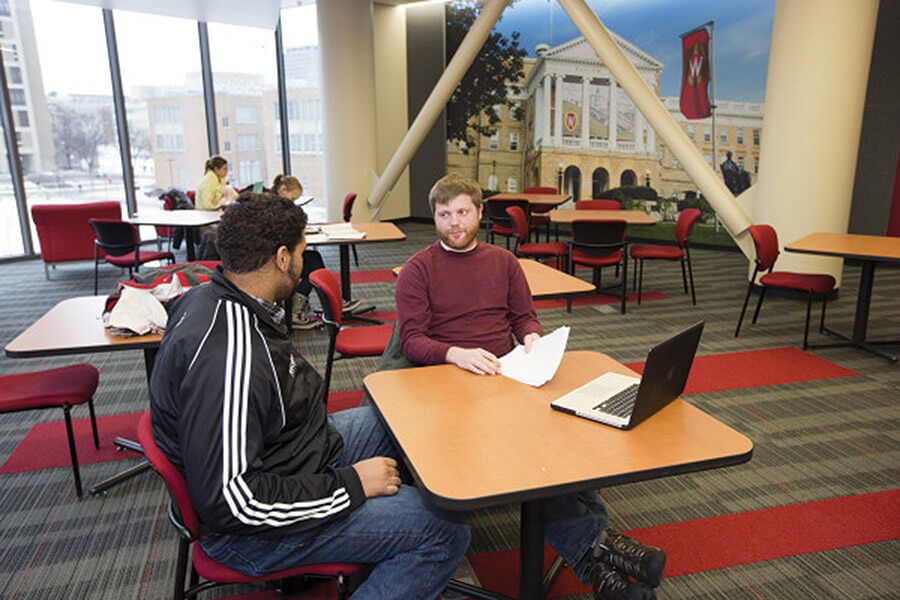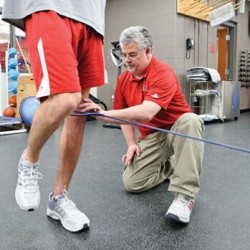Give Us an A for Academics

The new Fetzer Center for Student-Athlete Excellence is a physical reminder that UW student-athletes have a graduation rate higher than the national average. Photo: David Stluka.
This new center keeps a focus on the end game: getting a degree.
Seven thousand student-athletes have earned varsity letters and graduated from UW–Madison over the years, and all of their names will be displayed on a wall inside the new Fetzer Center for Student-Athlete Excellence, which opened earlier this year as part of the final phase of renovations at Camp Randall Stadium.
The center, which also has a satellite in the Kohl Center, first opened in 1997. It was housed in the basement of the McClain Center, and while it didn’t lack for services for the nearly eight hundred student-athletes on campus, it did lack for space.
“We’ve had a commitment to these things for a long time,” says Jason Holtman, the UW’s assistant athletic director for academic services.
The new center, built with gift money and state-issued bonds, encloses the north end of the stadium in brick and glass. It’s a physical reminder that the UW takes academics seriously.
“The number-one reason people come here is to get a degree,” Holtman says. “We didn’t just build a building with a bunch of study rooms.”
That commitment to academics has tangible results: UW student-athletes have maintained a cumulative grade point average of more than 3.0 for eight consecutive semesters. Their graduation rate (which includes transfer students and those who leave in good standing) is 85 percent, says the NCAA, compared to the national average of 82 percent. And the UW’s federal graduation rate, which does not count transfers, is 72 percent, also higher than the 65 percent average.
The new center, which includes a computer lab, meeting rooms, and quiet study areas with red couches and chairs, also gives the athletic department more space to pursue its efforts to help student-athletes develop themselves outside the classroom.
“It’s not the books or the ball, but it’s everything in between,” Holtman says. “It has so much room to grow.”
Although all Big Ten schools provide programming to develop student-athletes outside the classroom, the UW is one of just four of the conference’s twelve schools with a specific office devoted to these efforts. All UW athletes are required to complete courses in life skills, money management, nutrition, and career development.
“Athletics will end at some point for all of our student-athletes, so making sure they develop and grow outside of the athletic arena is key for their future success,” says Bridget Woodruff, the UW’s director of student-athlete development. “We are able to assist with their transition from high school, engage them in activities on campus, develop personal skills and leadership skills, enhance their global and cultural awareness, and set them up to advance in their careers when the cheering stops.”
Published in the Summer 2014 issue



Comments
No comments posted yet.